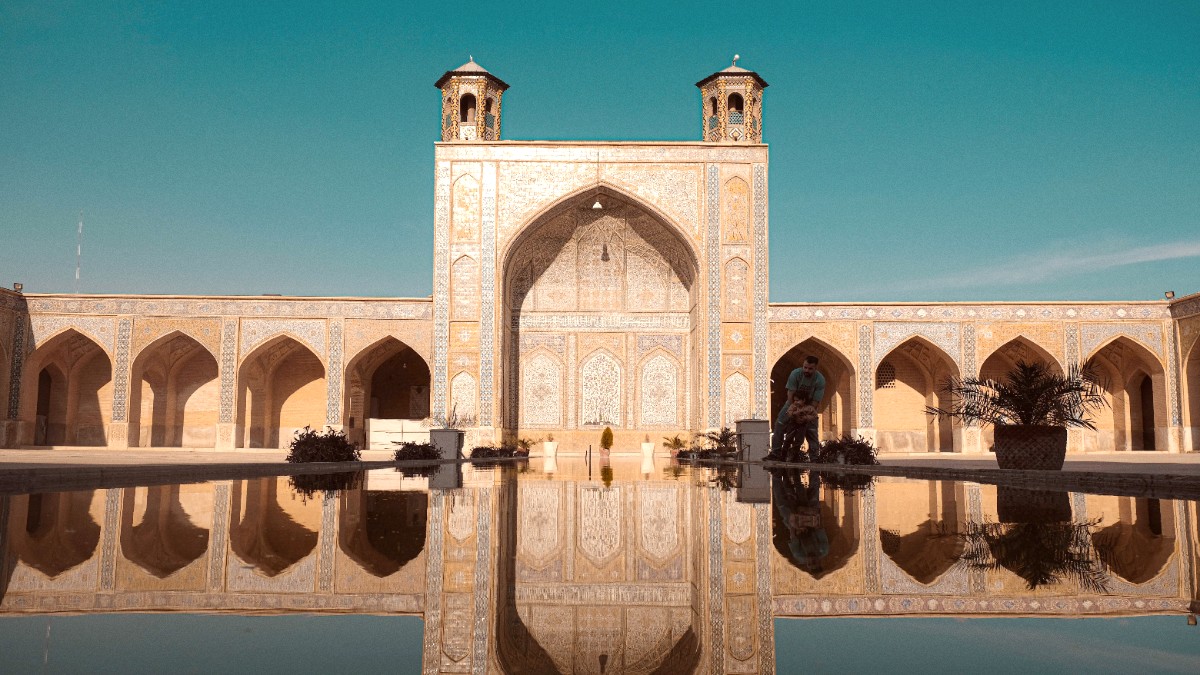
Iran
Shiraz experiences a hot, semi-arid climate, with distinct seasonal variations. The city's climate brings mild to warm temperatures in spring, hot dry summers, pleasant autumns, and cool winters with some precipitation.
Average daily highs range from 20°C (68°F) in spring to over 35°C (95°F) in summer, and 12-15°C (54-59°F) in winter.
Shiraz's hot, semi-arid climate means summers are very dry. Dust storms can occasionally happen, especially during dry, windy periods. Winter precipitation is generally moderate; heavy snowfall is not common but can occur.
For garden visits (Eram Garden, Narenjestan Qavam), spring (April-May) is the best time for full blooms. Persepolis and Pasargadae are best visited in spring and autumn. General sightseeing is most comfortable in spring and autumn.
Ideal weather for sightseeing
Ideal weather, gardens in full bloom, pleasant for outdoor exploration, many cultural events.
Higher prices for accommodation and tours, popular attractions have more visitors.
Fewer crowds, variable weather
Fewer crowds, lower prices for flights and accommodation.
Less predictable weather, some attractions may have reduced operating hours.
Lowest prices, extreme temperatures
Significantly fewer tourists, lower prices for flights and accommodation.
Summer heat can be intense, winters are cold with potential shorter hours at attractions.
Most non-Islamic countries need a visa obtained in advance. Citizens of a few countries (Turkey, Syria, Georgia, Azerbaijan, Oman) can enter visa-free or obtain a visa on arrival. Citizens of the United States, United Kingdom, and Canada face stricter rules; they typically travel with an authorized tour guide and obtain a visa in advance through a specific process. Many European and Asian nationalities can obtain a visa on arrival (VOA) at Shiraz International Airport (SYZ) for stays up to 30 days, with an authorization code or a passport free of Israeli visas. Advance visa acquisition is generally recommended to avoid airport delays.
The e-Visa application process is available through the Iranian Ministry of Foreign Affairs website. This process involves submitting an online application, receiving an authorization code, and then collecting the visa at an Iranian embassy or consulate, or upon arrival if eligible. Visa fees vary considerably depending on your nationality and the type of visa.
Valid for 6+ months beyond departure, no Israeli stamps.
2-4 recent passport-sized photos, head covering for women's photos.
Required for most, especially US, UK, Canadian citizens; obtained via Iranian travel agencies. IVisa, VisaHQ
Proof often needed, may be purchasable at airport for VOA.
Proof of onward tickets and hotel bookings might be requested.
The official currency is the Iranian Rial (IRR), but Iranians primarily use an unofficial unit called the Toman (1 Toman = 10 Rials). Prices are almost always quoted in Tomans. International credit and debit cards are generally not accepted due to sanctions. Travelers should bring enough cash (USD or EUR are widely accepted) for their entire trip. Exchange money at authorized exchange offices (Sarrafi) in cities for better rates than banks. Consider a money belt for security.
Costs vary by travel style:
Shiraz is generally considered a safe city for tourists. Violent crime against foreigners is rare. Petty crime (pickpocketing, bag snatching) can occur in crowded areas like bazaars or public transport. Exercise normal precautions for belongings.
No specific neighborhoods are typically considered dangerous for tourists during the day. As in any city, use care in poorly lit or deserted areas at night. Be careful of individuals offering unsolicited tours or "special deals" outside major attractions.
General precautions against pickpocketing and bag snatching in crowded areas are advisable.
In crowded areas like bazaars, keep wallets secure and bags close. A Money belt provides an extra layer of security.
Keep valuables out of sight, especially on public transport.
Avoid displaying large amounts of cash or expensive electronics openly.
Individuals offering "special deals" or unsolicited tours outside major attractions might be attempts at scams. Politely decline if unsure.
Arrange tours through reputable hotels or agencies.
Do not hand over your passport or large sums of money to strangers.
Respect local customs, notably dress codes and public behavior. Modest attire for women is mandatory. Public displays of affection are generally frowned upon.
Familiarize yourself with local laws and cultural norms before arriving.
Avoid political discussions or photography of government buildings and military sites.
| Travel Style | Accommodation | Meals | Transportation | Attractions | Total Daily Cost |
|---|---|---|---|---|---|
| Budget | $10-$20 | $10-$15 | $5-$10 | $5-$10 | $30-$50 |
| Mid-range | $30-$60 | $20-$30 | $10-$20 | $10-$20 | $50-$100 |
| Luxury | $70-$200+ | $40-$80+ | $30-$50+ | $20-$40+ | $100+ |